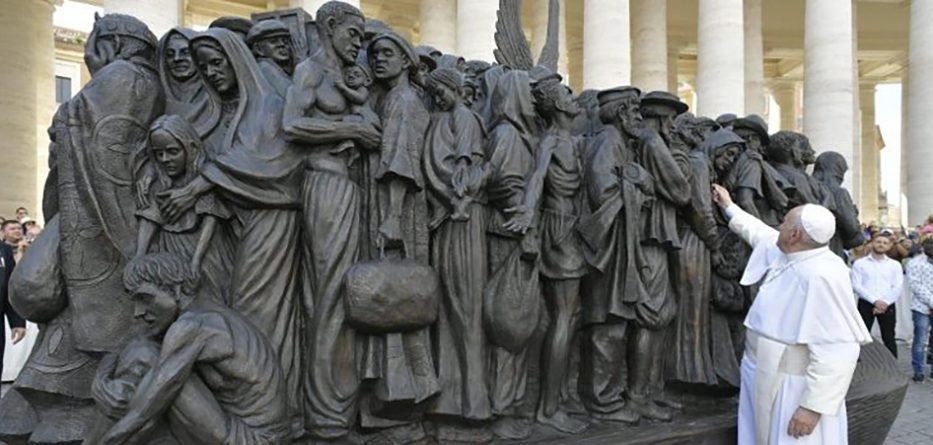Pope Francis’ Prayer Intention for February: Human trafficking – That our migrant brothers and sisters, victims of criminal human smuggling and human trafficking, may be heard and considered.
One of Pope Francis’ earliest journeys was to the island of Lampedusa. There he mourned the deaths of the many people who had died on the route from the North African coast. They had to leave their lands to escape persecution, war and hunger. Their deaths were a sign of the effects of the greed, inequality and lack of compassion towards people in need.
This month, Pope Francis asks us to pray particularly for immigrants who fall victim to greedy and brutal traders. These people often send agents to war-torn and poor villages, where they talk glowingly of the golden life that awaits them and their relatives overseas and the care that they will receive along the way. They persuade many villagers, already anxious for their lives in their home country, to provide large sums of money for pay for travel, food along the way and, if necessary, false papers. They often must borrow money from friends and relatives.
When they arrive at the shore, they often face demands for more money and are placed on old, unseaworthy and grossly overcrowded boats. Many boats sink, abandoned by their crew. Those that arrive are often prevented from landing. New arrivals are placed in camps where they are ill-fed and despairing. Wealthy nations shut them out. The people have taken advantage of their need, taken their money, ruined their families and left them without hope of finding a life.
In his intention, Pope Francis speaks deliberately of refugees who are victims of criminal, not illegal, smuggling. The difference is important. Smuggling and trafficking are criminal when they are not undertaken out of compassion for the immigrants, nor show them respect at each stage of their journey, but regard them as commodities from whose trading the greatest possible profit must be made.
Governments often define all transport and accompaniment of immigrants across national boundaries as criminal. When people flee death and starvation through persecution and war, however, it is a virtue to assist them even if it has been declared illegal. The networks that helped Jewish people hide and escape from Germany and occupied nations in the ’30s and ’40s acted illegally but are celebrated as heroes today. So earlier were those involved in the Underground Railway that helped escaped slaves. Many Australians who fled from Indochina, too, owed their lives to the kindness and reliability of people who helped them to flee the country.
The key to look at immigrants is not to see them as things or the objects of government policy and law, but as human beings all with their own story to tell and to be heard with compassion. That compassion is often denied them both by people who traffic them and by governments that persecute and exclude them.
Pope Francis asks us to see their faces as we hold them in our prayers and plead their cause.
Fr Andrew Hamilton SJ writes for Jesuit Communications and Jesuit Social Services.








